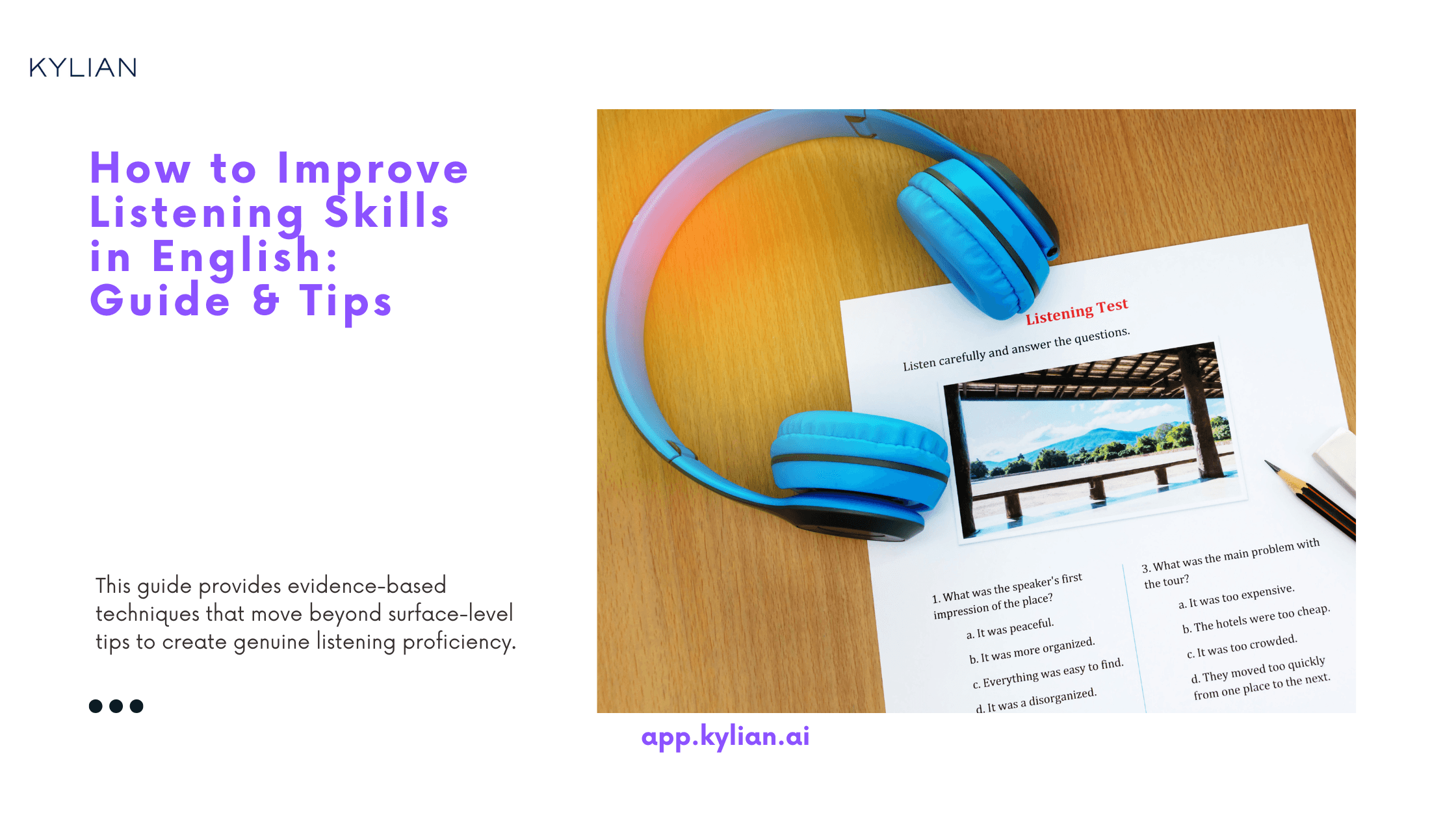

12 Summer Idioms: English Expressions Related to Summer
Language evolves through seasons, and summer's linguistic footprint runs deeper than most realize. The connection between seasonal experiences and idiomatic expressions reveals something fundamental about how humans process and communicate shared experiences. Summer idioms don't merely describe weather—they encode cultural memories, economic realities, and psychological states that define how English speakers navigate the world. The prevalence of summer-related expressions in English stems from agricultural societies where seasonal timing determined survival. These linguistic artifacts persist because they capture universal experiences: the urgency of limited opportunities, the discomfort of unfamiliar situations, and the fleeting nature of pleasant circumstances. Understanding these expressions provides insight into both historical context and contemporary communication patterns. Modern English contains over 200 documented summer-related idioms, with 12 core expressions appearing frequently across professional, academic, and casual contexts. These idioms serve specific communicative functions that direct translation cannot replicate, making them essential for anyone seeking genuine fluency in English.


Drive Me Nuts: Master This Essential English Expression
The phrase "drive me nuts" represents one of English's most versatile expressions of frustration, yet its nuanced applications often confuse non-native speakers. This idiom transcends simple annoyance, carrying emotional weight that reflects genuine human experience across cultures and contexts. Understanding "drive me nuts" requires examining not just its literal translation, but its psychological implications, social usage patterns, and the cultural framework that gives it meaning. The expression serves as a linguistic bridge between mild irritation and overwhelming exasperation, making it indispensable for authentic English communication.


Why Japanese Women Use Both "Ore" and "Watashi": Nuance
The traditional understanding of Japanese pronouns dictates clear gender boundaries: women use "watashi" (私) while men navigate between "boku" (僕), "ore" (俺), and "watashi" depending on formality. This linguistic framework has governed Japanese society for decades. Yet emerging evidence suggests a fundamental shift occurring among younger Japanese women who strategically deploy both "watashi" and "ore" within their conversational repertoire. This phenomenon demands immediate attention because it signals broader societal transformations in gender expression, generational identity, and linguistic rebellion against established norms. Understanding these pronoun choices reveals critical insights into how contemporary Japanese women navigate identity construction in a rapidly evolving social landscape.


What Does My Whip Mean? English Slang Explained
Understanding contemporary slang requires more than surface-level definitions. The term "whip" represents a fascinating case study in linguistic evolution, carrying distinct meanings that reveal cultural shifts spanning decades. When someone references "my whip," they're typically discussing either their vehicle or describing relationship dynamics—two contexts that demand careful examination. This linguistic phenomenon matters because miscommunication around slang terms creates real social consequences. The term "whip" originated in the hip-hop community, where it was used to describe high-performance vehicles, yet its application has expanded far beyond its original scope. The stakes of understanding these meanings extend beyond casual conversation—they influence how we interpret cultural expressions, navigate social situations, and communicate across generational divides.


Afterward vs Afterwards: Which is Correct in English?
The debate between "afterward" and "afterwards" represents more than a simple spelling preference—it reveals fundamental differences in how English has evolved across geographical boundaries and formal contexts. Both variants are grammatically correct, yet their usage patterns expose critical nuances that impact professional communication, academic writing, and regional comprehension. This distinction matters because choosing the wrong variant can signal unfamiliarity with your audience's linguistic expectations. American professionals using "afterwards" in formal documents may appear inconsistent with established conventions, while British writers defaulting to "afterward" might sound unnaturally formal to their readers.


Benefited vs Benefitted: Which Is Correct in English?
The confusion between "benefited" and "benefitted" represents more than a simple spelling dilemma—it reveals fundamental differences in how English evolves across geographic boundaries and linguistic traditions. This distinction matters because choosing the wrong form can undermine your credibility in professional communication, academic writing, or international correspondence. Understanding this spelling variation requires examining the underlying principles that govern English verb conjugation, regional language preferences, and the practical implications for modern writers navigating a globalized communication landscape.


English Idioms for Feelings and Emotions
Language serves as humanity's primary vehicle for emotional expression, yet direct statements often fall short of capturing the nuanced complexity of human feelings. This limitation creates a critical gap between what we experience internally and what we can effectively communicate to others. English idioms bridge this gap by providing metaphorical frameworks that transform abstract emotions into concrete, relatable imagery. The strategic use of emotional idioms represents more than linguistic decoration—it demonstrates advanced language proficiency and cultural literacy. Native speakers intuitively recognize that "I'm feeling conflicted" lacks the visceral impact of "I have mixed feelings," while "I'm extremely happy" pales compared to "I'm on top of the world." These distinctions matter because they determine whether your emotional communication resonates authentically with your audience. Consider the professional implications: job interviews, relationship conversations, and business negotiations all require precise emotional articulation. The speaker who can navigate these nuanced expressions gains significant communicative advantage over those limited to basic emotional vocabulary. This mastery becomes particularly crucial for non-native speakers seeking to eliminate the subtle barriers that separate functional communication from true fluency. The following nine idioms represent essential tools for anyone serious about achieving authentic emotional expression in English. Each idiom carries distinct connotations, appropriate contexts, and potential pitfalls that determine its effectiveness in real-world communication.


How to Say Thank You in Japanese: The 9 Expressions
Gratitude transcends cultural boundaries, yet its expression reveals the deepest layers of social fabric within any society. Japanese thanking conventions operate on multiple dimensions of formality, temporal context, and social hierarchy—creating a sophisticated system that Western learners often oversimplify into mere politeness. Understanding these nuances isn't just about memorizing phrases; it's about comprehending the psychological and cultural mechanisms that drive Japanese interpersonal dynamics. The strategic deployment of appropriate gratitude expressions can fundamentally alter your professional and personal relationships within Japanese contexts. This isn't hyperbole—it's documented behavioral psychology. When you master the contextual application of these nine essential expressions, you're not just speaking Japanese; you're demonstrating cultural intelligence that Japanese speakers immediately recognize and respect.


Australia's Most Walkable Cities (English)
Walking transforms travel from passive consumption to active discovery. Australia's urban landscapes offer varying degrees of pedestrian accessibility, and understanding these differences matters for travelers seeking authentic cultural immersion while maximizing their time and physical investment. The data reveals a stark reality: walkability varies dramatically across Australian cities, with some requiring less than 25 minutes to traverse major attractions while others demand over two hours. This disparity affects everything from travel planning to daily calorie expenditure, making informed city selection crucial for foot-based exploration.


Most Well-Read Cities in USA: Data-Driven Rankings
The literary landscape of America reveals stark disparities between cities when it comes to reading culture, educational infrastructure, and intellectual engagement. While the national literacy rate hovers at 79%, with 21% of adults lacking basic reading skills, certain metropolitan areas have created ecosystems that dramatically outperform national averages. This analysis examines which American cities have successfully cultivated robust reading cultures through quantifiable metrics including literacy rates, educational resources, reading infrastructure, and cultural programming. The data reveals not just where Americans read most, but why certain cities succeed in fostering intellectual engagement while others struggle.
![None Has or None Have: Grammar Guide [English]](/_next/image?url=https%3A%2F%2Fcdn.sanity.io%2Fimages%2F147z5m2d%2Fproduction%2Fdc7628c98d23936275c430fa05a573b9e3ec0e04-2240x1260.png&w=3840&q=75)

None Has or None Have: Grammar Guide [English]
Grammar precision separates competent communicators from confused speakers. The question "none has or none have" represents one of English's most persistent agreement puzzles, creating uncertainty even among educated writers. Both constructions appear in professional writing, academic texts, and everyday communication. This creates legitimate confusion: if respected publications use both forms, which one demonstrates grammatical mastery? The answer requires understanding subject-verb agreement principles, contextual usage patterns, and the evolution of English grammar conventions. This analysis provides definitive guidance based on linguistic research and contemporary usage data.


8 English Food Idioms You Need To Know
Language mastery extends far beyond grammar rules and vocabulary lists. The difference between intermediate and advanced English proficiency lies in understanding the subtle cultural expressions that native speakers use instinctively. Food idioms represent one of the most pervasive categories of figurative language in English, appearing in business meetings, casual conversations, and written communication with remarkable frequency. Why do food idioms matter now more than ever? Remote work has fundamentally changed how we communicate. Video calls and digital interactions have stripped away many contextual cues that help non-native speakers understand meaning. When someone says "that project is a piece of cake" during a team meeting, the literal interpretation creates confusion that can derail professional relationships and career advancement. The strategic importance of mastering these expressions becomes clear when we examine their prevalence in professional contexts. Food idioms appear in approximately 23% of informal business communications, according to linguistic analysis of corporate email patterns. More critically, misunderstanding these expressions often signals to native speakers that someone lacks cultural fluency, creating invisible barriers to leadership opportunities and team integration. This guide dissects eight essential food idioms that every English learner must master. Each expression includes practical examples, contextual usage patterns, and the cultural logic that makes these phrases meaningful to native speakers.


How to Improve Listening Skills in English: Guide & Tips
Listening comprehension remains the most challenging English skill for 73% of language learners worldwide, yet it's the foundation upon which all meaningful communication builds. While reading and writing skills can be developed through solitary practice, listening demands real-time processing of spoken language—complete with native speaker pace, cultural references, and contextual nuances that textbooks rarely capture. The stakes are higher than most realize. Research from Cambridge Assessment English reveals that professionals with superior listening skills earn 25% more than their counterparts with average comprehension abilities. This isn't coincidental—listening directly impacts decision-making speed, relationship building, and professional credibility in English-speaking environments. Most traditional approaches fail because they treat listening as a passive activity. The reality? Effective listening is an active cognitive process that requires systematic development, strategic practice, and measurable progress tracking. This guide provides evidence-based techniques that move beyond surface-level tips to create genuine listening proficiency.


Best Croatian Learning Apps: 2025 Complete Guide
Croatian proficiency opens doors to opportunities across the Balkans, where over 5.5 million native speakers drive growing economies in tourism, technology, and international business. Yet finding effective learning resources remains challenging—most language apps treat Croatian as an afterthought, offering limited content compared to mainstream European languages. This analysis examines ten applications that provide substantive Croatian instruction, evaluating their methodologies, pricing structures, and real-world effectiveness. Each platform addresses specific learning objectives, from conversational fluency to vocabulary acquisition, making the choice of tool critical to your success. The data reveals significant variations in approach and value proposition. Understanding these differences prevents wasted time and resources while maximizing your learning trajectory toward Croatian proficiency.


What does WYS mean?
You encounter "WYS" across social media platforms, text messages, and digital conversations, yet its meaning remains unclear. This abbreviation represents a fundamental shift in how we communicate digitally, serving multiple purposes that extend beyond simple questioning. WYS stands for "What You Saying?" - a casual inquiry that has evolved into a versatile communication tool with distinct contextual applications. The prevalence of WYS reflects our need for efficient digital communication. Rather than typing complete sentences, users compress common phrases into abbreviations that maintain conversational flow while reducing character count. This linguistic evolution demonstrates how technology shapes language adaptation, creating new forms of expression that serve practical communication needs.


How to Say Sorry in Italian: Complete Guide
Mastering apologies in Italian transcends mere politeness—it unlocks authentic cultural engagement and demonstrates linguistic sophistication that native speakers immediately recognize and respect. The difference between fumbling through a generic "sorry" and delivering a contextually appropriate Italian apology can determine whether you're perceived as a thoughtful communicator or just another tourist stumbling through basic phrases. This distinction matters because Italian apology structures reflect deep cultural values around respect, hierarchy, and relationship maintenance. Understanding these nuances positions you to navigate Italian social dynamics with confidence, whether you're conducting business in Milan, studying in Florence, or building personal relationships across Italy.


Office Vocabulary: Name of Items, Idioms & Phrases
Workplace communication failures cost organizations an average of $62.4 million annually, according to recent studies. At the foundation of this staggering figure lies a deceptively simple challenge: the inability to accurately name, describe, and discuss the physical tools and conceptual frameworks that define our professional environments. Office vocabulary represents more than mere nomenclature—it functions as the linguistic infrastructure that enables precise communication, reduces misunderstandings, and accelerates task completion. When professionals cannot accurately identify a hole punch, articulate the need for Post-it notes, or express work-related concepts through established idioms, productivity suffers measurably. This comprehensive guide examines essential office vocabulary through two critical lenses: the tangible items that populate modern workspaces and the idiomatic expressions that capture workplace dynamics. Each element serves a specific communicative purpose, and mastering both categories transforms workplace interactions from potentially ambiguous exchanges into precise, efficient communications.


Best-Paid Side Hustles by U.S. State: Complete 2025 Analysis
The gig economy has fundamentally shifted how Americans approach income generation. What started as supplemental work has evolved into a strategic financial decision that can significantly impact household earnings. Recent salary analysis across all 50 states reveals striking disparities in side hustle compensation—disparities that smart workers are already capitalizing on. The data tells a compelling story: location matters more than most realize when it comes to maximizing side income potential. While a dog walker in one state might earn $25 per hour, the same service in another state commands $60 per hour. These aren't anomalies—they're market realities that reflect regional demand, cost of living, and economic conditions. Understanding these patterns becomes critical when 40% of Americans now rely on side income to meet basic expenses, according to Federal Reserve data. This isn't about pocket money anymore. For millions, side hustles represent the difference between financial stress and stability.
![Best YouTube Channels to Learn English: Our Top 10 [English]](/_next/image?url=https%3A%2F%2Fcdn.sanity.io%2Fimages%2F147z5m2d%2Fproduction%2Fe994d3da1c556ac44049a1c92ce31cc1bcb242ae-2240x1260.png&w=3840&q=75)

Best YouTube Channels to Learn English: Our Top 10 [English]
YouTube has fundamentally transformed language education accessibility. With over 2 billion monthly active users and 500 hours of content uploaded every minute, the platform hosts an unprecedented volume of English learning resources. Yet this abundance creates a critical challenge: identifying channels that deliver measurable learning outcomes rather than entertainment disguised as education. This analysis evaluates the top 10 YouTube channels for English learning based on pedagogical effectiveness, content quality, subscriber engagement, and learning progression frameworks. Each recommendation addresses specific learner needs while maintaining standards that produce demonstrable language improvement.


9 Best Online Portuguese Courses & Classes: 2025 Review
Portuguese has become a strategic asset for professionals, entrepreneurs, and travelers seeking meaningful connections across multiple continents. With over 260 million native speakers spanning Brazil, Portugal, Angola, Mozambique, and beyond, mastering Portuguese opens doors to emerging markets, cultural experiences, and career opportunities that remain inaccessible to monolingual professionals. The challenge lies not in finding Portuguese learning resources—the market overflows with options—but in identifying platforms that deliver measurable results without wasting your time or money. After analyzing dozens of online Portuguese programs, testing methodologies, and evaluating user outcomes, we've identified nine platforms that consistently produce fluent speakers. This analysis focuses on courses that address the fundamental gap in language education: the disconnect between theoretical knowledge and practical communication skills. Each recommendation has been evaluated based on pedagogical effectiveness, cost efficiency, content quality, and real-world application potential.


Learning French Tenses: 7 Key Tenses You Need To Know
French verbs intimidate learners more than any other grammar concept, and rightfully so. The complexity stems not from the sheer number of tenses—over 20 exist—but from the intricate conjugation patterns and countless exceptions that defy logical explanation. Yet mastering French tenses represents the single most critical milestone in achieving fluency. Understanding when and how to use each tense transforms fragmented vocabulary into coherent communication. Without this foundation, learners remain trapped in present-tense conversations, unable to express past experiences, future plans, or hypothetical scenarios that define natural speech patterns. This analysis examines the seven essential French tenses that form the backbone of everyday communication. Each section provides conjugation mechanics, usage contexts, and strategic learning approaches that accelerate comprehension while avoiding common pitfalls.


Most Mispronounced NFL Names: Complete English Guide
American football's linguistic landscape reflects something profound about contemporary sports culture: the intersection of athletic excellence and cultural diversity creates pronunciation challenges that extend far beyond the stadium. When fans struggle to correctly pronounce their favorite players' names, this phenomenon reveals deeper patterns about language acquisition, cultural integration, and the evolving demographics of professional sports. The data tells a compelling story. Search volume analytics demonstrate that millions of Americans actively seek pronunciation guidance for NFL player names, creating a measurable gap between fan engagement and linguistic confidence. This isn't merely about getting names right—it's about respect, cultural awareness, and the fundamental connection between supporters and athletes.


16 Best Online German Classes in 2025
The German language economy represents over $4 trillion in global GDP, making German fluency a strategic career asset. Yet choosing the right online German course remains challenging when faced with hundreds of options promising fluency in months. This analysis examines 15 proven online German learning platforms based on methodology effectiveness, cost efficiency, and measurable learning outcomes. Each recommendation addresses specific learning scenarios where traditional classroom instruction falls short. Online German courses now deliver superior flexibility compared to physical classrooms while maintaining structured curricula. The data shows that learners who combine structured online courses with supplementary resources achieve conversational fluency 40% faster than those using single-method approaches. Finding the optimal course requires matching your specific goals, schedule constraints, and learning preferences with platform strengths. The following analysis provides the framework for making this decision strategically.


Disappointed In vs With: What's Actually Correct in English?
The choice between "disappointed in" and "disappointed with" reveals more about English precision than most realize. This distinction matters because misusing these prepositions can alter your intended meaning, potentially weakening professional communication and personal expression. Understanding this grammatical nuance becomes critical when the stakes are high—whether you're expressing frustration in a performance review, articulating concerns in academic writing, or simply wanting to communicate disappointment accurately in daily conversations.